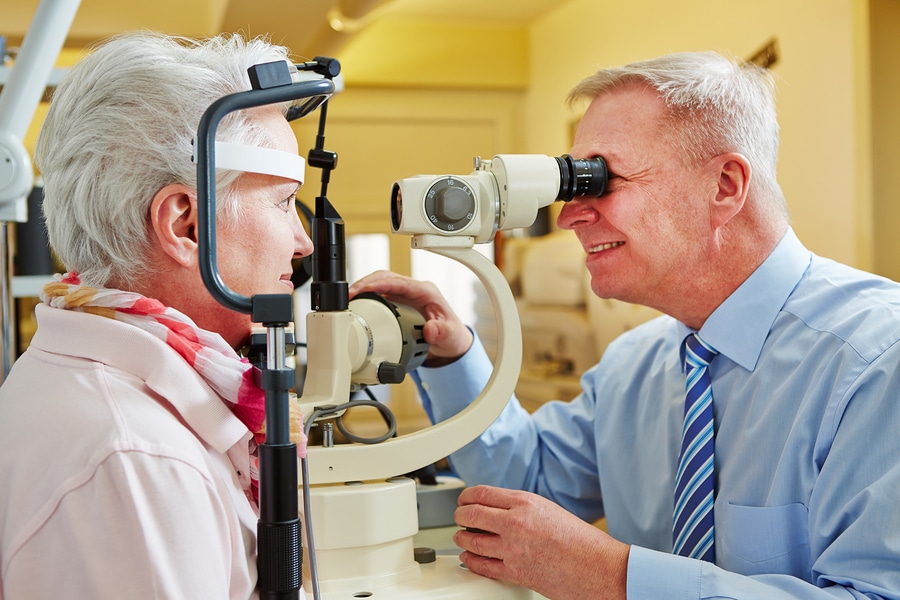What Do You Need to Know about Protecting Your Senior’s Eyes if She’s Diabetic?

November is Diabetic Eye Disease Month, which means that this is an important time to address possible eye issues with your senior if she has any risk factors for diabetes. Here’s what you both need to know.
Diabetic Eye Diseases Can Lead to Blindness
Diabetic eye diseases cover a lot of ground. There is a higher risk of cataracts and glaucoma for people with diabetes, and other diseases such as diabetic retinopathy are a serious health concern. The biggest problem is that these conditions may start out gradually and eventually lead to blindness. In most cases, that blindness could be prevented by getting the diabetes under better control.
High Blood Sugar Damages Blood and Nerve Vessels
High blood sugar causes a great deal of damage in many parts of your elderly family member’s body. In the case of your senior’s vision, higher levels of blood sugar can cause problems like blurry vision. That’s a short-term problem that is often temporary. Over longer spans with uncontrolled blood sugar levels, the small blood vessels and nerves that are in and that lead to the eyes can end up severely damaged. By that point, the damage is often permanent.
Keep Blood Sugar Levels Under Control
So, what’s the answer? Ultimately, your elderly family member needs to do what she can to keep her blood sugar levels as tightly controlled as possible. That may mean making dietary changes, which is easier with the help of personal care at home. Your elderly family member may also need to change her activity levels, stop smoking, and address other lifestyle changes that help to make blood sugar easier to control. Regular testing helps her to know what her blood sugar levels are without guessing. That’s also easier with help from personal care at home providers.
Keep up with Medical and Eye Doctor Visits
It’s crucial that your elderly family member stay on top of her medical visits, including appointments with her eye doctor on a regular basis. This helps her to address any new symptoms or problems as soon as they arise, which is imperative if she’s going to try to head off lasting damage. If transportation is a problem, personal care at home can help with this, too.
Even with perfect adherence to her care plan, your elderly family member may still develop some diabetic eye diseases. What’s important is that she’s aware of her personal risk factors and that she does as much as she can to head off those possible issues.
If you or an aging loved one is considering personal care at home in Brentwood, CA, please contact the caring staff at Provident Care Home Care today at (209) 578-1210.
- Alzheimer’s Care and Aging in Place - April 12, 2024
- The Most Common Reasons Why Seniors Don’t Want To Eat - April 4, 2024
- Why Respite Care is Important and How Senior Home Care Helps - March 29, 2024
